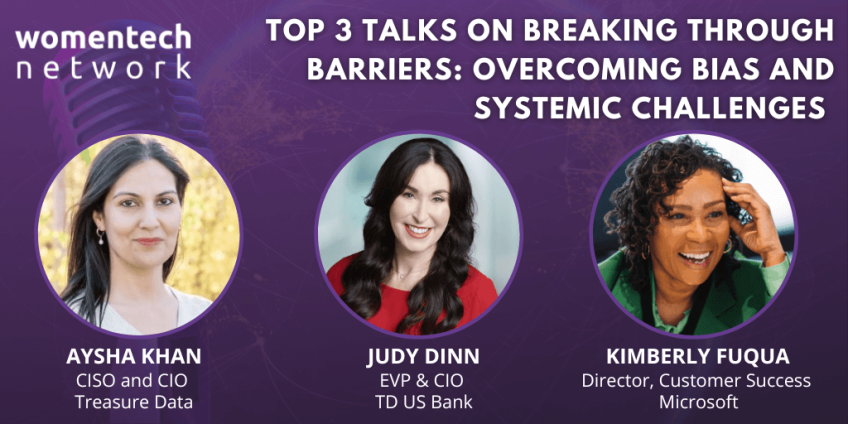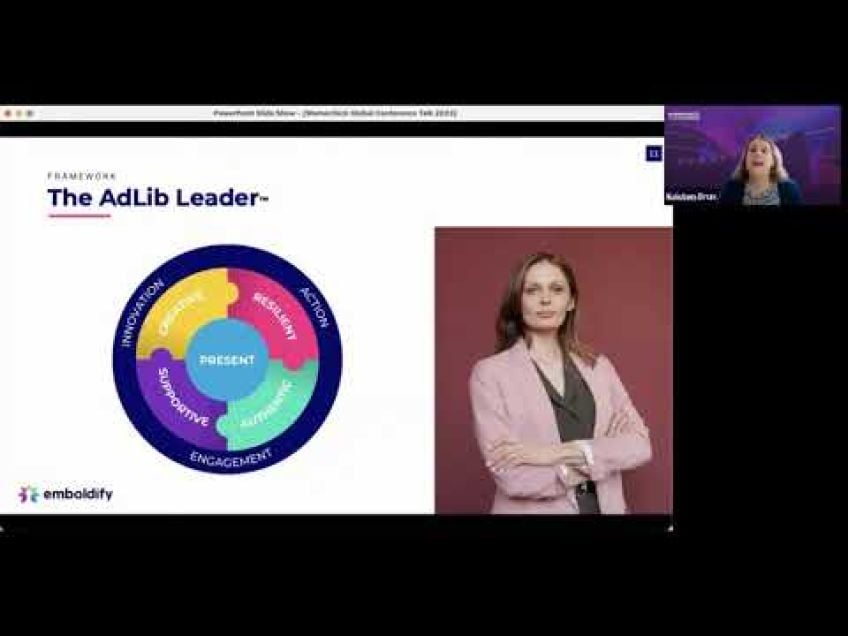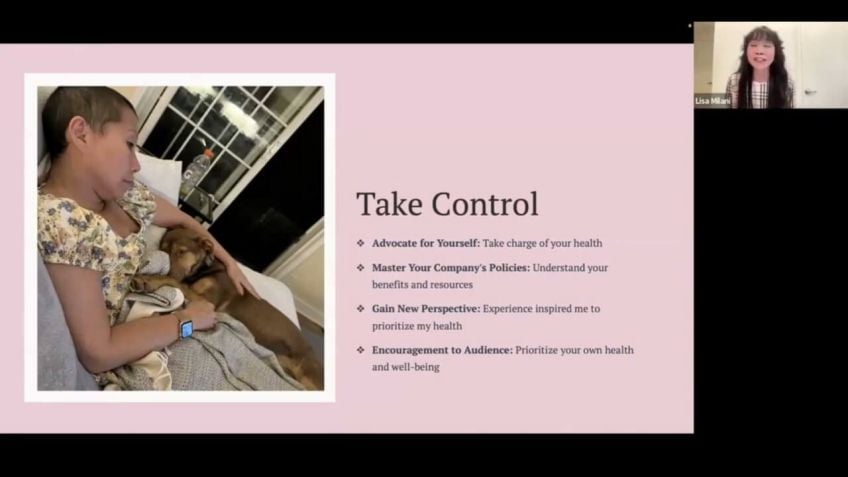Resilience, mindset and overcoming adversity by Sacha Dekker
Turning Adversity into Resilience: My Story
Throughout our journey in life, we face numerous twists and turns that continuously put us to the test. It's during these challenging times that we discover our truest selves. This is a story about resilience, courage, and overwhelming triumph over adversity. It's about learning how to transform your suffering into strength, to use adversity as a platform to continuously grow and evolve.
My Unexpected Turn
On August 24th, 2015, my life took an unexpected turn. A routine surgery led to a massive bleed in my brain, leaving me paralyzed on my left side. I was diagnosed with a rare form of epilepsy six years earlier, in 2009, which had progressively worsened. Left with the daunting choice between brain surgery, or full-blown Alzheimer's by the time I was 50, I thought I had made an easy choice. But something went drastically wrong.
I was fully paralyzed. I couldn't sit up straight, walk, or stand without support. Three weeks later, I was told I would spend the rest of my life wheelchair-bound in a nursing home. These words could not have been further from my desired reality. Defeated, I looked my neurologist in the eye and confidently expressed my commitment to walking again - specifically on the Great Wall of China. Distraught, he responded, telling me I would soon 'come to terms with it'.
Today, I Share Three Crucial Lessons
1. The Power of Self-Talk
Our beliefs significantly influence our actions and in turn, our outcomes. The key to walking again was changing my mental narrative. I replaced fear and doubt with a mantra that affirmed my strength and ability: “I’m indestructible, I can walk”. It was self-talk that empowered me to reclaim my mobility and defy the odds. And it continues to be self-talk that helps me accomplish challenging tasks today.
2. Finding Your ‘Why’
Simon Sinek emphasized the need for a 'why' - a reason or purpose that drives our actions. For me, it was a brand session that I did for 50 people that helped me find my 'why.' Despite my disability, I helped people discover their "aha" moments. It reminded me of my value, my worth, and the impact I could still make.
3. Defining Yourself
Despite numerous setbacks, I was never content with others defining my capabilities. Determined to return to work, I added an extra minute to the screen time and an extra page to the reading every day. It was my relentless pursuit of growth that transformed the odds. I’d like to encourage you to do the same: Set your goal, become the person capable of reaching that goal, and then smash that goal.
Unimaginable Triumph
Two years after the bleed had paralyzed me, on August 24th, 2017, I walked on the Great Wall of China. This life story unraveled not to recount the setbacks I encountered but to inspire resilience and determination in the face of adversity. You too can transform adversity into growth by harnessing the power of self-talk, finding your 'why', and defining your potential.
Feel free to engage with more inspiring content guys and connect via Twitter or LinkedIn. Seize your greatness and believe in yourself because you can accomplish whatever you want! Have a fantastic day!
Video Transcription
Let's get started. So I have no slides to share. We're going to keep this very informal. I'd love to hear your questions throughout. Uh So here is my objective.By the end of our time together, you're going to be walking away with some very practical tools to help you feel more resilient. And I'm gonna tell you a story. I'm gonna tell you my story. I'm doing this quite a bit and so far it's always worked and so it's gonna work for you and we're gonna go back in time a bit. We're gonna go back in time to 24 August 2015. The last thing I remember is the unicity is telling me to count down from 10. The first thing I remember is two nurses telling me they're gonna roll me over. There's about 24 hours in between that I don't remember. And the reason that the nurses had to roll me over is because I was fully paralyzed down my left side somewhere in these 24 hours, I'd had a massive bleed in my brain during what was supposed to be a fairly straightforward surgery six years previous in 2009, I was diagnosed with a very rare form of epilepsy.
Um, and over the years that epilepsy had gone progressively worse to the point where my neurologist was telling me that if we didn't do something, I was going to have full blown Alzheimer's by the time I was 50. Now, when you heard the words brain surgery for the first time, two things come to mind. At least for me. One is scary. The second one is mcdreamy. Well, let me tell you, no doctors ever look like Patrick Dempsey, they're all old and gray. But anyway, apart from the scary stuff, you know, this surgery was done twice a month every month for the past 10 years. Like literally, this was the appendix surgery of brain surgeries. This was gonna be you walk in on Monday, they do the surgery you walk out two days later on Thursday, this was super routine. Nothing had ever gone wrong in the 10 years that they've been doing this surgery. You know, say if you have the choice between the appendix surgery of brain surgeries and full-blown Alzheimer's, it's pretty much an easy choice, but something went very wrong, fully paralyzed on the left side of my body, my face wasn't working. I couldn't smile nor that there was anything to smile about because I couldn't sit up straight without help. I couldn't walk, I couldn't stand, I basically couldn't do anything without support.
Three weeks later, my medical team came in and, you know, it's serious when they bring the psychologist and they handed me a list of nursing homes and told me that I was going to spend my life in a wheelchair in a nursing home. I wasn't going to walk again. I wasn't going back to work. I wasn't going to live independently. My neurologist wrote an article about me in the lancet, one of the leading medical magazines and wrote and the patient looks at me and said, you have no idea what I'm capable of. I'm going to not just walk again. I'm going to walk on the great wall of China. I knew straight away that that was gonna happen. There was no chance I was gonna walk. I was gonna live in a nursing home. He looks at me, he patted me on my arm and he said, you'll come to terms with it. There are others like you, you will still have some quality of life. It just inland with me. I was like, there's this just can't be my life. I was in hospital for nine months. I've been living with a disability for the past seven years. Here are some of the things that I've learned that you will benefit from too. The very first one is self talk. Our body believes what we tell it every single time.
So I was in the general hospital for five months and then I was in the rehabilitation hospital for four months. And so my main goal was, and this was on paper, like, what's the main goal you need to look at that was to be able to walk 50 m inside without someone holding me and 10 m outside. Cos of course, like outside, you know, pavements more uneven there is like wind and weather conditions. It's very different. And so I remember at one point, I was in the National Rehabilitation Hospital here in Ireland and I was in there for about, I think, three or four weeks and my physiotherapist decided to venture outside of the gym. Very exciting stuff. And this at a time when she was still holding me. And so we walk outside of the gym and by this time I was able to kind of walk, you know, I was walking with like a rollator, like a stick and she's holding me, but I'm walking. This is amazing. And I had a bit of a stumble like you can't even call it tripping, but a bit of a stumble and instantly the voices in my head. Go see, you can't walk, you're not strong enough. This is never gonna work. Your body can't hold you.
And I'm voicing this to Fiona, a physiotherapist and I'm like, Fiona, what if I'm not ready for this? What if I'm just, you know, it's, it's too much. What if I don't know how to walk and she looks at me and she goes chair and she walks me over to the nearest chair, she sits me down and she looks at me and she goes, Sasha, the only thing standing between you and a perfect round walk around the quadrangle is like the inside garden is you and all the things you are telling yourself.
She's like, I'm going to walk to the office, I'm going to get some papers and when I come back, I need you to have decided what you want to do cos if you decide that you can't do this, I'm going to get your wheelchair and I'm gonna bring you back up to the wards. She came back and in the two minutes that she was gone, I decided I was gonna do this and I changed my mantra to, I'm indestructible. I can walk. And with every step that I took, I told myself I'm indestructible. I can walk. And I walked a perfect lap around the quadrangle. And I do this every time. Now, every time I need to do something, I talk to myself beforehand, I am indestructible. I can walk or whenever I need to do a big presentation, I talk to myself first. Every bit of science shows that our body believes what we tell it. It doesn't matter how much you prepare for something. Like if you have to like do something for your CEO or an important stakeholder, you can prepare all you want. If you don't believe you can do it you can't, like, I'm sure we've all seen the Henry Ford quote, whether you think you can or whether you think you can't. You're right. Neuroscience is showing this your body and mind, believe what you tell it, tell it positive things. So that's the first thing I've learned, self talk matters more than anything else. The second thing I've learned is you have to find your why. And I know that Simon Sinek has, you know, written loads of books about this. Here's what that meant for me.
So at one point I learned, you know, kind to walk. I was able to, you know, walk very short distances and that was all great. I'm again now in the rehabilitation hospital, but mentally, I wasn't doing so great. Like, you know, I need to come to terms with the fact that I have a disability and the world is very different and I'm hugely doubting my value. My worth, my life is forever different because while I might be able to kind of walk, I'll never be able to properly walk. My arm is doing nothing. It's fully paralyzed and it'll probably never work again. And I need to realize this. Like, do I have any value? Uh Is the world ever gonna accept a facilitator, a manager who is disabled? Will my friends still want to be friends with me? I'm single. Is anyone ever gonna want to date me? Do I have any value to the world? And if I don't do I still want to be alive and I struggle with this and I find myself doubting my value to the world, to myself, to my friends. And I'm struggling with rather suicidal thoughts. I don't know what to do. And then one day I'm having a conversation with the head of recreational services in the rehabilitation hospital. And he's telling me that he is in charge of a large group of volunteers. And he's telling me that they're struggling with their brand.
And all of a sudden I see an opportunity because I used to run loads of brand sessions in the company that I worked for. And I'm like, hey, I can do this for you. And he's like, really? And I was like, absolutely. He said, but you know, sash, there's about 50 of them. Are you gonna be ok? You know, running something for 50 people? And I'm like, absolutely. And I'm scared shitless because I haven't done this. I mean, I'm in hospital by now for about eight months and I haven't done anything for 50 people in eight months, but I see an opportunity I can do this. And this is a session I would have done in my sleep before. But now this is exciting and scary, but mainly exciting and I always get emotional about this because it was such a thing. Sorry. And I did this and as I stood there as I ran that session, it reminded me of who I was of the fact that I will always have a disability. I will always walk with a stick. My arm may never work again, but I'm still me. I can still add value. I'm still the person I always was inside. I can still inspire people to come up with their aha moment. It reminded me who I am. And so that's what I would challenge all of you to do at the end of the day.
What makes you who you are? If everything else is stripped away, what is your why? What makes you truly wake up in the morning and do what you do? Because here's the thing, you can only lose what you have, you can never lose who you are. So think about that. What makes you you and in the end find that because that's all that really matters. And then the last thing that really, really matter that I really learned is you need to define yourself. Loads of people are going to want to define you. People will always have an opinion about you. So I remember so towards the end of my time in the rehabilitation hospital, I did a vocational assessment and it's like to gauge like will you be able to return to work and all of that? And so I left the hospital on the 30th of April and then on the fifth of May, I received this report, Enid Red Sara. Um uh Sasha comes across as a very inspirational woman. These are the things we like. Uh we are very concerned that she is overconfident about her abilities. Someone who has a brain injury that has impacted someone as much as hers, as severe as hers with the residual physical impact is more than unlikely to go back to work full time, let alone at the level she's used to. I used to be a senior manager.
Now I remember receiving this and the main reason for that, by the way was mental fatigue. People who have brain injuries generally suffer from severe mental fatigue. Now, I remember receiving this and at the time I was staying with my best friend because when I came out of hospital, they don't want you going back home straight away. I was by myself. And so I was staying with my best friend. But I remember reading this report and at that time I was able to read for about five minutes before I was absolutely exhausted and look at a computer screen for about four minutes. And I remember reading this and going, oh my word. What if they're right? And then I was like, no, no, no, no, no, no, no, no, no, no, this is not happening. I am going back to work. And so I pushed myself one more page every day, one more minute of screen time, every day, my return to work was a nightmare. And every step of the way was, by the way, not with my current employer. Let be very clear about that. Every step of the way with everything I did. People try to tell me what I couldn't do. I wasn't going to be able to walk. I wasn't going to be able to go back to work. And then when I did go back to work, they told me to take it easier. I remember then when I switched jobs, I went to another company again, not my current company.
I remember someone told me people like you should not be in front of stakeholders. It looks weak. People will always try to define you don't let them. You are the only person who knows what you are and aren't capable of. And it's incredibly important that you realize this and that you do something with it. Set your goal, become the person who is capable of reaching that goal and then smash that goal. Do this make it happen? Now, I'd love to be able to share my screen and show you something. If I would just be able to let me see how I can do that. I can't. OK. So in that case, I will tell you that on the 24th of August 2017 to the day, two years after the bleed in my brain destroyed all connections. On the left side, I walked on the great wall of China. Set your goal work to become the person who can reach that goal and then smash that goal. Don't let anyone define you, find your way. Make sure that you know who you are and tell yourself nice things. Your brain believes them. Any questions, I'd love to answer them. Ok. Well, in that case, so I really want to narrow it down. Find me on Twitter or on linkedin. I'm always happy to connect with all of you and have a wonderful rest of the conference. Be great. Believe in yourself.
You can do whatever you want and I'd love to see you again. Have a great day.





